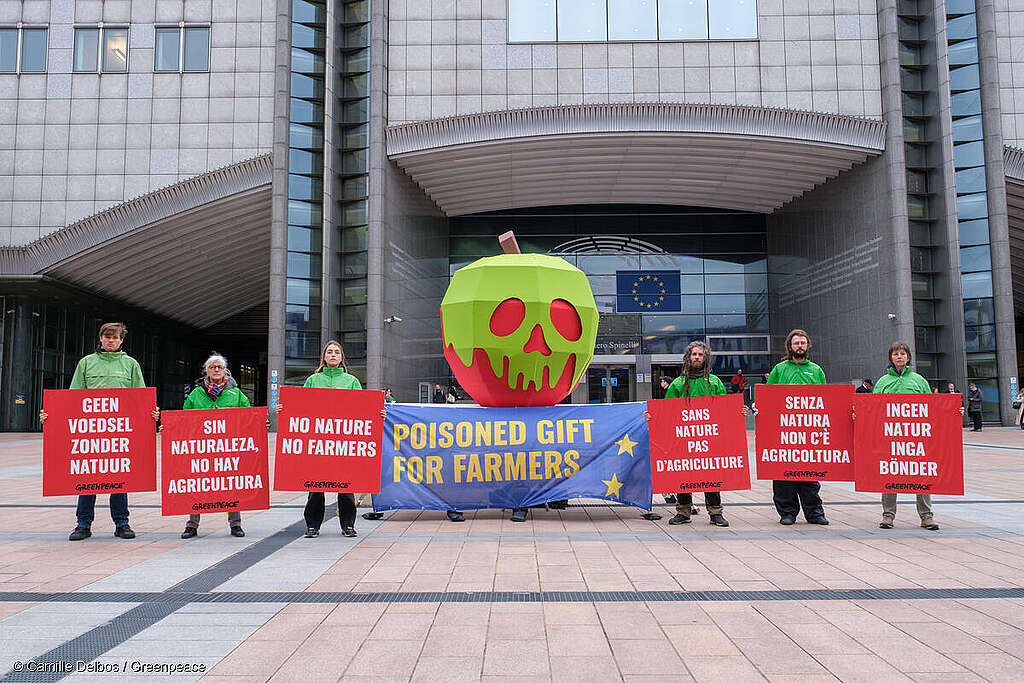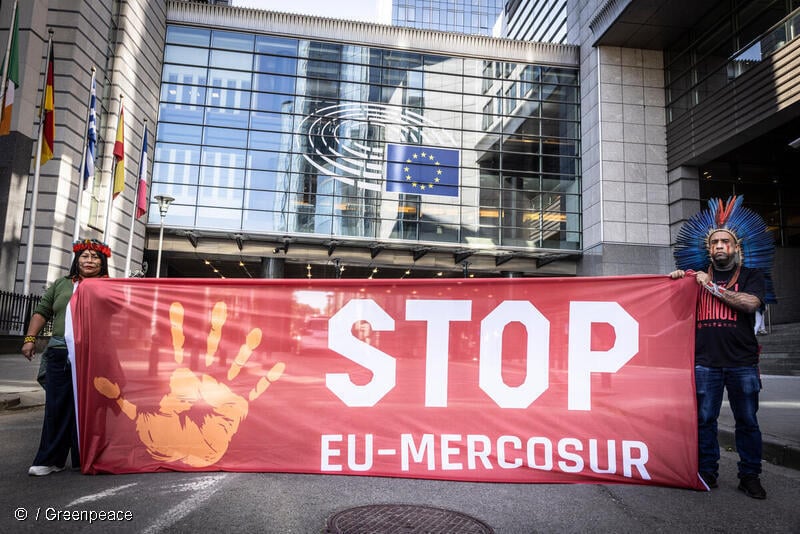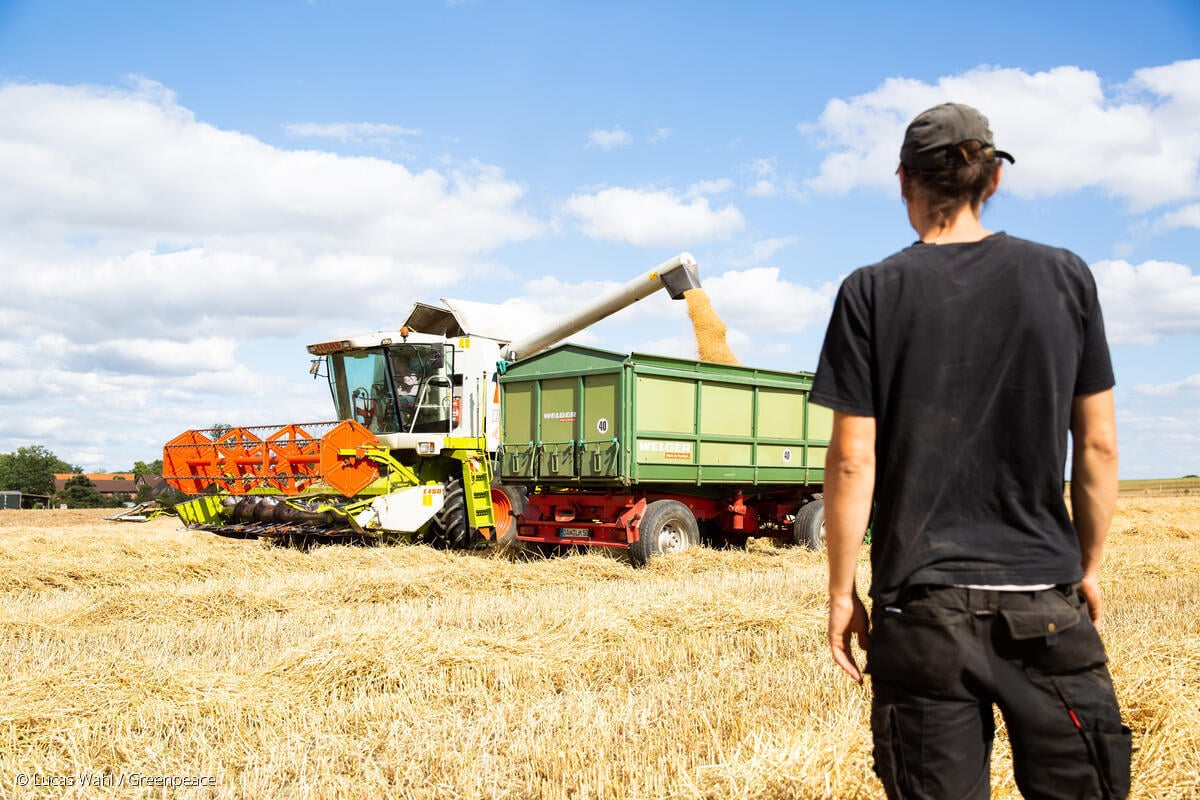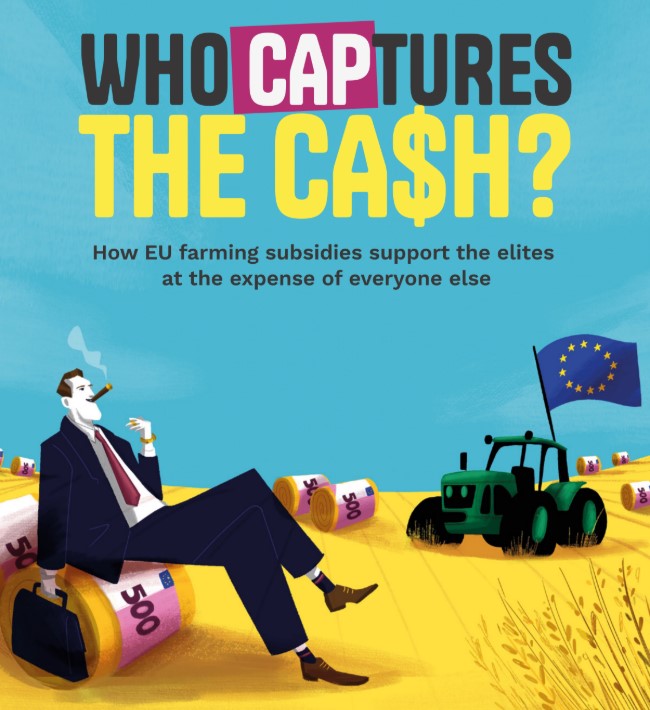Brussels – The European Commission has removed dedicated funding to help farmers move to nature-friendly methods in its long-term budget and proposed update to the EU’s farming policy, published today after being announced yesterday afternoon. While the EU’s current common agricultural policy ring-fences one-third of its funds to make European farming more sustainable and lower its impact on the climate, the new proposal would allow national governments to dedicate significantly less.

Greenpeace is warning that the end to dedicated funding for greener farming threatens the long-term viability of the sector, which desperately needs to cut its pollution and impact on nature, and become more resilient to extreme weather brought by climate breakdown.
Marco Contiero, Greenpeace EU agriculture policy director, said: “Letting each national government decide how much to invest in making farming more sustainable threatens the common goal of European agriculture that works with nature and can thrive in a changing climate. The Commission’s plan could make farm payments more fair, redistributing funding from huge landowners and factory farms to farmers in need, but this risks being undermined by 27 national plans under pressure from their industrial farm lobbies. Farmers are on the front lines of extreme weather, and are going out of business at an alarming rate. They need a common approach to make European farming more resilient and more fair, not a patchwork that stagnates the status quo and rewards rich polluters.”
The Commission’s proposal includes significant steps to change the current subsidy system, mostly based simply on the area of land farmed, which causes the vast majority of EU farm money to go to rich landowners and industrial farms. The new plan would put an upper limit on the amount of public money any farm can receive, payments based on hectares farmed would reduce as farms get bigger, and funds are supposed to be better targeted to farmers in need. Giving national governments wide discretion to decide which farms are in need of extra support risks undermining this progressive approach to address the huge injustices in European farming, Greenpeace is warning.
The Commission plan also introduces rules to set limits for the crowding of farm animals in areas at risk from nitrogen pollution from their waste, and incentives for farms to move towards more extensive livestock production. These are baby steps in the right direction to tackle the unbearable health and environmental impacts of industrial livestock, according to Greenpeace.
Contacts:
Marco Contiero, Greenpeace EU agriculture policy director: +32 477 77 70 34, [email protected]
Greenpeace EU press desk: +32 2 274 1911, [email protected]
For breaking news and comment on EU affairs: Bluesky
Greenpeace is an independent global campaigning network that acts to change attitudes and behaviour, to protect and conserve the environment and to promote peace. We do not accept donations from governments, the EU, businesses or political parties. Greenpeace has over three million supporters, and 26 independent national and regional organisations with offices in more than 55 countries.
EU Transparency Register: 9832909575-41



